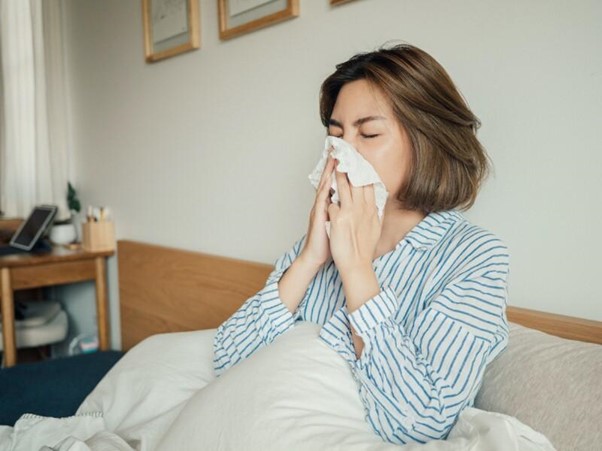
Allergy testing is a medical procedure used to identify and diagnose allergies. It’s a crucial step in managing allergies effectively because it can help you and your doctor determine the best course of treatment for you.
Allergy tests are often performed through skin prick tests or allergy blood tests, and they measure the amount of IgE antibodies that are produced in response to exposure to a particular allergen.
Types of Allergy Tests
There are several types of allergy test available for diagnosing allergies, including skin prick tests, patch tests, blood tests, and food challenges.
Skin prick testing is one of the most commonly used tests for identifying airborne allergens such as pollen or dust mites.
Patch testing is used to identify contact allergens, such as those found in cosmetics, fabrics, and detergents.
Blood tests are used to detect food allergies and sensitivities, while food challenges are used to diagnose severe reactions that may occur after eating certain foods.
Advantages of Allergy Testing
Pinpoint Exactly What You’re Allergic To
Symptoms may indicate one or more allergies, but allergy testing can determine exactly which allergen(s) you are allergic to.
Accurate diagnosis can also help prevent unnecessary avoidance of allergens and result in a more targeted treatment plan.
Improve Your Quality of Life
Knowing what you’re allergic to can allow you to manage symptoms better so you can enjoy life more, without the constant worry of allergic reactions.
Enhanced Safety
For people with severe allergies, sudden allergic reactions, including anaphylaxis, can be life-threatening.
Knowing what you’re allergic to, you can take steps to avoid exposure or carry essential medication like epinephrine auto-injectors.
Prevent Complications
Allergic rhinitis can worsen asthma symptoms, which can compromise airways and increase the risk of respiratory complications. Identifying and managing allergies can help to prevent further complications.
Disadvantages of Allergy Testing
Time and Expense
Allergy testing can take several hours, which may cause inconvenience and disruption to your day. Additionally, the cost of allergy testing varies from location to location and may not be covered by all insurance plans.
Risk of Severe Reactions
While rare, severe allergic reactions to the testing procedure can occur. However, testing protocols are in place to ensure patient safety.
False Positives
Test results do not always line up with your specific allergies, which can lead to the unnecessary elimination of foods or substances from your life.
Benefits of Accurate Diagnosis
Accurate diagnosis is crucial when it comes to managing allergies effectively. Allergy tests can help provide an accurate diagnosis, which allows doctors to create a tailored treatment plan that is specific to your needs and lifestyle.
This can result in more effective management of your allergies and better overall health.
Tips for Managing Allergies Effectively
Once you receive the results of your allergy test, it’s important to work closely with your doctor to develop a plan for managing your allergies.
Here are some tips for managing allergies effectively:
Identify and avoid allergens
Once you know which allergens you’re allergic to, make every effort to avoid them. For example, if you’re allergic to pollen, limit your time outdoors during the peak pollen season.
If you’re allergic to pet dander, avoid homes with pets, and refrain from petting animals when you’re out in public.
By avoiding allergens, you can prevent allergy symptoms before they start.
Monitor your environment
Checking your home environment for allergens can make a significant difference in managing your allergy symptoms. Keeping your home’s air clean is crucial for managing allergies. Use air filters, dust covers, and vacuum frequently.

You can further reduce allergens by showering before bed, removing shoes before entering the house, and washing bedding frequently.
This limits the amount of pollen, dust, and pet dander that can accumulate and impact your allergies.
Seek medical advice
To manage your allergies effectively, it is essential to seek medical help. There are many advances in allergy medicine, such as prescription allergy medications, over-the-counter antihistamines, and even allergy shots (immunotherapy).
When you work with a qualified doctor, you can develop a treatment plan that works for you and your allergies.
Always carry medication
Whether you’re taking allergy medication or carrying an injectable EpiPen, carrying your allergy medication with you at all times is essential.
This goes for all kinds of allergies, including food allergies. Make sure you’re up to date with current medication and dosage recommendations.
When you have your medication on hand, you’re prepared to manage your allergies when symptoms arise.
Eat healthy
Consuming a balanced diet can help reduce the impact of allergies. Fatty foods, for example, can increase inflammation and worsen allergy symptoms.
A healthy diet rich in fruits, vegetables, and lean proteins can reduce inflammation and help your body better manage allergens.
Conclusion
Allergy testing is an important step in managing allergies effectively. Accurate diagnosis is crucial for creating an effective treatment plan, and understanding your triggers can help you avoid potential exposures.
By following these tips and working closely with your doctor, you can manage your allergies safely and successfully.
This article has provided a comprehensive overview of allergy testing, the types of tests available, the advantages and disadvantages of testing, the benefits of accurate diagnosis, and tips for managing allergies effectively.
Allergy testing is a crucial step in managing allergies safely and successfully.
By understanding the basics of allergy testing and its benefits, you can properly manage your allergies and enjoy a healthier life.
Learn more.